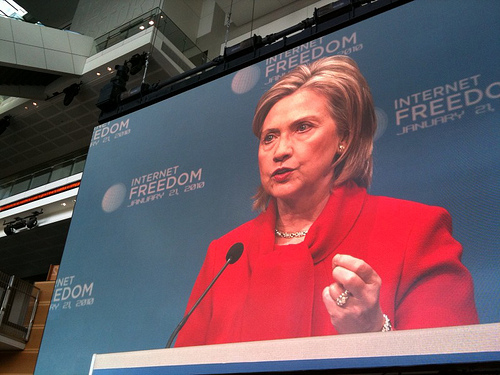middle east
Deploying “shock effect” as public diplomacy is a tactic regularly used by our enemies – whether in Lebanon or in Gaza or elsewhere – to galvanize world opinion against Israel. The filmed death of Muhammad al-Dura in Gaza on September 30, 2000, the second day of the second intifada, became an iconic rallying point not only for Palestinians...
Israel may have reached a historic turning point Sunday in the popular media battlefield when the Public Diplomacy and Diaspora Affairs Ministry worked through the Government Press Office to release graphic photographs of the murdered members of the Fogel family.
The sudden onset of the Arab spring and winter has reminded us yet again that America doesn't run the world. And the country must be wary, in the elegant phrasing of the late Reinhold Niebuhr, of its own dreams of managing history.
As I entered the Washington Convention Center exhibit area, I saw many tables that appeared to be staffed by what Jewish organizations worry is an endangered species: interested and engaged young pro-Israel supporters...
There continues to be an ongoing debate about how to regulate the Internet. This conundrum arises from two questions. Is the Internet a platform for old ideas to be transformed in a new medium, or rather a medium for all-together new paradigms of thought?
Though divided by borders, the Arab nations are linked by ancient bonds of language, ethnicity, and faith, all of them tightened by the modern technology of Twitter, Facebook, and Al Jazeera. The pro-democracy protests started in Tunisia and raced east like rows of falling dominos.
A pervading sense of awe seems to be engulfing Arab societies. What is under way in the Arab world is greater than simply revolution in a political or economic sense. It is, in fact, shifting the very self-definition of what it means to be Arab, both individually and collectively.








